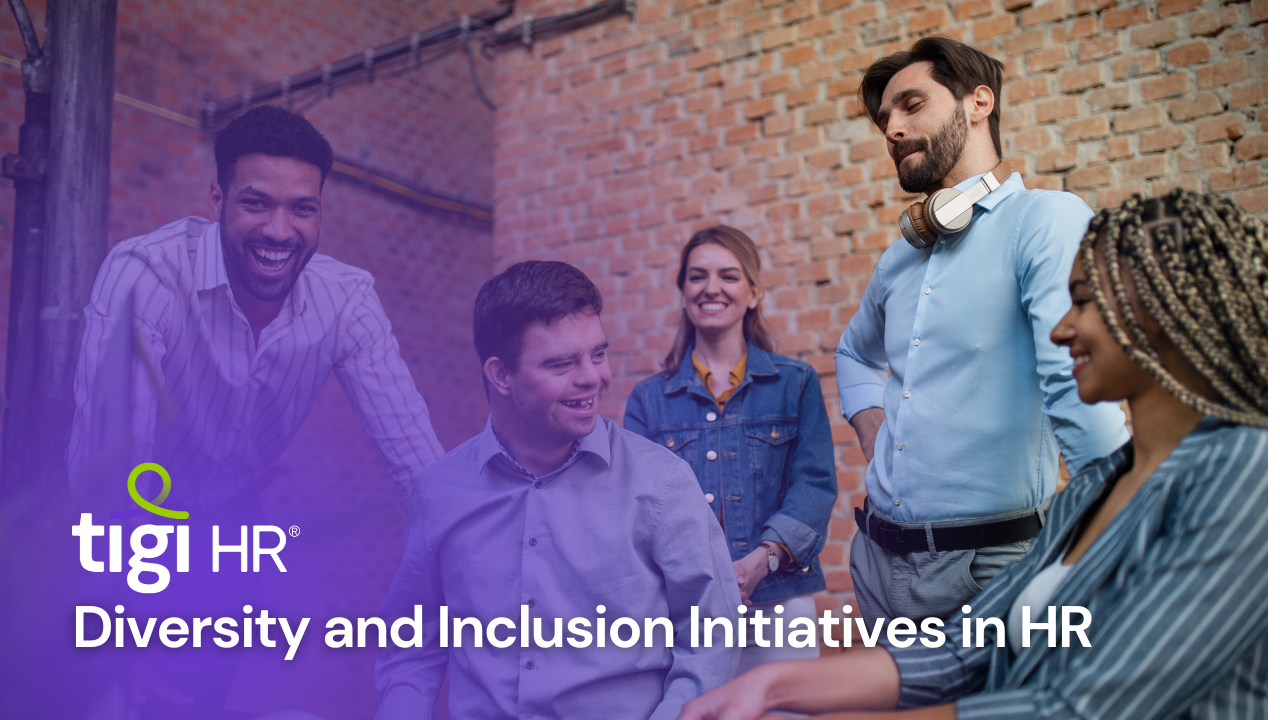In today’s rapidly evolving workplace landscape, diversity and inclusion (D&I) have become not just buzzwords but vital components of human resources (HR) strategy. The realization that diverse and inclusive workplaces are more innovative, productive, and sustainable has driven organizations to embrace D&I initiatives in their HR practices. In this article, we’ll explore the significance of D&I initiatives in HR, their impact on businesses, and how to implement them effectively.
The Business Case for Diversity and Inclusion
Diversity goes beyond mere representation of different races, genders, and backgrounds. It encompasses a wide range of perspectives, experiences, and talents that contribute to a richer and more dynamic work environment. Numerous studies have shown that diverse teams outperform homogeneous ones in various aspects.
Innovation: Diverse teams are more likely to generate innovative ideas. The fusion of different perspectives leads to creative solutions and a broader range of insights.
Employee Engagement: Inclusive workplaces foster a sense of belonging among employees, leading to higher engagement levels. When employees feel valued and respected, they are more motivated to contribute their best.
Customer Relations: A diverse workforce can better connect with a diverse customer base. It enhances communication and understanding, ultimately leading to improved customer relations.
Attracting Talent: Organizations with strong D&I initiatives are more appealing to top talent. Prospective employees are increasingly considering an employer’s commitment to diversity when making career choices.
Key Elements of Effective D&I Initiatives in HR
Implementing D&I initiatives requires a thoughtful and systematic approach. Here are some key elements to consider:
Leadership Commitment: Top-level support and commitment are essential. When leaders champion D&I, it sets the tone for the entire organization.
Diversity Training: Provide training on unconscious bias and cultural competence to promote awareness and understanding among employees.
Inclusive Policies: Develop and enforce policies that foster inclusivity, such as flexible work arrangements, equal pay, and anti-discrimination measures.
Diverse Recruitment: Expand the talent pool by actively recruiting from diverse sources. Use blind recruitment processes to eliminate bias.
Mentorship and Sponsorship: Establish mentorship programs to support underrepresented employees and provide them with opportunities for growth.
Data and Metrics: Regularly collect data on diversity within the organization and track progress. Use this information to refine D&I strategies.
Challenges and Solutions
While the benefits of D&I initiatives are clear, they come with challenges. Resistance to change, unconscious bias, and a lack of understanding can hinder progress. Addressing these challenges requires persistence and a commitment to education and awareness.
Resistance to Change: Change can be unsettling. To overcome resistance, organizations should communicate the benefits of D&I clearly and involve employees in the process.
Unconscious Bias: Training and workshops can help employees recognize and mitigate their biases. Continuous education is key to building awareness.
Measuring Success: Quantifying the impact of D&I initiatives can be challenging. Use a combination of metrics, including employee surveys, turnover rates, and representation data, to gauge progress.
Conclusion
Diversity and inclusion initiatives in HR are not just a checkbox on an organization’s to-do list; they are a strategic imperative for long-term success. A diverse and inclusive workplace is more innovative, engages employees, and improves customer relations. To be effective, D&I initiatives must be rooted in leadership commitment, training, inclusive policies, and ongoing measurement of progress.
In an era where talent is a critical asset, attracting and retaining the best requires a commitment to diversity and inclusion. Companies that embrace these principles not only strengthen their internal culture but also position themselves for success in a global, diverse marketplace. It’s time for HR professionals to unlock the full potential of their organizations by harnessing the power of diversity and inclusion.
Comprehensive HR Consulting: Addressing Challenges and Seizing Opportunities
Comprehensive HR consulting services play a vital role in helping businesses navigate the complexities of human resource management. By addressing challenges such as compliance, diversity and inclusion, employee relations, and organizational restructuring, HR consultants empower organizations to create a thriving and productive workplace. With their expertise and strategic guidance, businesses can overcome obstacles, seize opportunities, and achieve long-term success. Embracing comprehensive HR consulting services is a strategic investment that enables businesses to focus on their core competencies while ensuring effective management of their most valuable asset—their people.
Find trusted recruitment agencies: Click here





